Fritextsökning
Artiklar per år
Innehållstyper
-
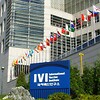
Now it’s settled: The International Vaccine Institute will be located in Stockholm
The International Vaccine Institute, IVI, is establishing itself outside South Korea for the first time. Last week, the Swedish Parliament ratified the agreement, which means that a branch of the institute will be located in Stockholm.
-
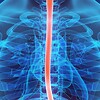
The first pharmaceutical for eosinophilic esophagitis approved in the U.S.
The U.S. Drug Administration has approved the drug Dupixent (dupilumab) to treat inflammation of the oesophagus of the type eosinophil esophagitis.
-

No demand for new Covid vaccine – “It will probably be discarded”
So far, just under 6 000 doses of the Covid vaccine from Novavax have been used in Sweden, leaving over 1.4 million doses in stock. “They will probably be discarded due to lack of demand in Sweden as well as globally,” says Sweden’s National Vaccine Coordinator Richard Bergström to Life Science Sweden.
-

Start-up developing ”digital twin” received award during the EIT Health Summit
A biotech company, a medtech company and a company in digital health were on the podium when the EIT Health Catapult awarded its winners.
-

Anna Törner: To kill your darlings
Hopes were high when Anna Törner and her colleague started a study on a dietary supplement that seemed unbelievably good. “Enthusiastically, we dreamed of exciting results and perhaps a publication in a high-impact journal,” she writes in a column.
-
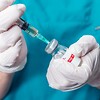
Få tar det nya covidvaccinet – men en region går helt emot strömmen
Nästan en och en halv miljon doser av Novavax vaccin mot covid-19 har levererats till Sverige. Men inte ens 6 000 har gått åt. En region sticker dock ut. I Region Jönköping har uppseendeväckande många fler tagit det proteinbaserade vaccinet.
-

Pfizer flyttar svenska huvudkontoret till Hagastaden
Läkemedelsjätten Pfizer flyttar sitt svenska huvudkontor till Life City i Hagastaden, som därmed får ännu ett stort life science-företag som hyresgäst.
-

Forskare utvecklar kontaktlinser för att bota grön starr
Kinesiska forskare har utvecklat kontaktlinser som ska känna av om trycket i ögat stiger och därefter frigöra läkemedel för att sänka trycket vid behov. Förhoppningen är kunna bota grön starr.
-

Hello Angelica Loskog!
Life Science Sweden would like to know more about Angelica Loskog and interviews her about her life as a researcher.
-

Så mycket tjänar världens bäst betalda forskningschefer
Från 47 procent i löneökning för den ene – till ett 95-procentigt löneras för den andre. Olika föll ödets lotter för världens bästa betalda forskningschefer inom läkemedelsindustrin i fjol men ett har de gemensamt: det går ingen nöd på någon av dem.
-

Han föreslås till vd-posten för sammanslagna apoteksjätten
Beslut om sammanslagningen av Kronans Apotek och Apoteksgruppen förväntas under andra halvåret i år.
-
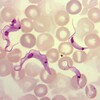
Noxious parasite forms hybrids and deceives the immune system
The small parasite Trypanosoma cruzi has a nasty ability to cause serious illness. Researchers at the Karolinska Institutet have now mapped its ability to deceive the immune system by forming new variants that are mixtures of different strains.
-

Investments worth 40 billion in the Öresund region – “A huge investment wave”
A new report reveals that medical companies in the Oresund region are investing like never before.
-
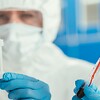
New rules for diagnostic products, but who will certify them? “An extreme shortage area”
In less than two weeks, new and stricter EU rules will enter into force for thousands of products used in important diagnoses of, among other things, cancer and Covid-19. However, not one single institute in the entire Nordic region is able to certify the diagnostics companies’ products according to the new regulations. “In the end, it risks affecting patients,” says Anna Lefèvre Skjöldebrand, CEO of Swedish Medtech.
-

Ny modell ska identifiera rätt dos litium vid bipolär sjukdom
Ny forskning vid Karolinska institutet kan bidra till att lösa ett stort problem inom behandling av bipolär sjukdom: att hitta rätt dos litium för varje patient.
-
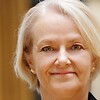
Karriärcoachen: Så minglar du bäst på kongressen – och får ett dolt jobb
Samhället har öppnat upp efter pandemin och konferenser, kongresser och Almedalen står på agendan. Men efter två år i en digital bubbla kan man känna sig ringrostig inför minglandet. Karriärcoachen Tina Persson tipsar om vad du ska tänka på inför det fysiska mötet.
-
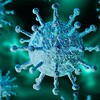
Studie beskriver hur coronavirus trivs på olika ytor
En ny studie från KTH ökar förståelsen av hur sars-cov-2 interagerar med olika ytor på molekylär nivå.
-

Tougher competition as the Novo Nordisk Foundation broadens its programme
Søren Nedergaard has worked with innovation at the Danish Government Offices and the University of Copenhagen. Today, he is COO of the Novo Nordisk Foundation, which has recently broadened its programme for leading innovators in medical research to apply to the entire Nordic region.
-

Paolo Macchiarini in court – “The sole intent was to cure”
Paolo Macchiarini’s surgical procedure was illegal, life-threatening and caused severe and prolonged suffering to patients the prosecution claimed when the trial against the Italian surgeon began on Wednesday last week.
-

Cyxone skjuter på patientrekrytering och listbyte
Forskningsbolaget Cyxone skjuter på prognosen för patientinkludering för fas 2-studien med Rabeximod och avvaktar med tidigare aviserade planer på ett listbyte till huvudmarknaden.
-
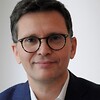
We will now publish more news in English – and offer yet another newsletter
Starting next week, Life Science Sweden will begin offering a newsletter entirely in English.
-

Precisionsläkemedlet Gavreto mot lungcancer får subvention
Tyrosinkinashämmare Gavreto blir nu tillgänglig för patienter med avancerad eller spridd lungcancer med en särskild genförändring.
-
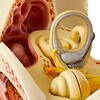
Positiva resultat för läkemedel mot hörselnedsättning
Det amerikanska bioteknikföretaget Otonomy rapporterar positiva resultat från en klinisk studie med sin läkemedelskandidat mot hörselnedsättning.
-
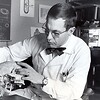
When carelessness, forgetfulness and coincidence become the researcher’s best friend
Forgetfulness, coincidence and a stroke of luck hardly make up a fruitful method of serious research. Or do they? Actually, a number of important medical advances have come about thanks to completely random incidents and the open-mindedness of scientists who were ready to think outside the box.